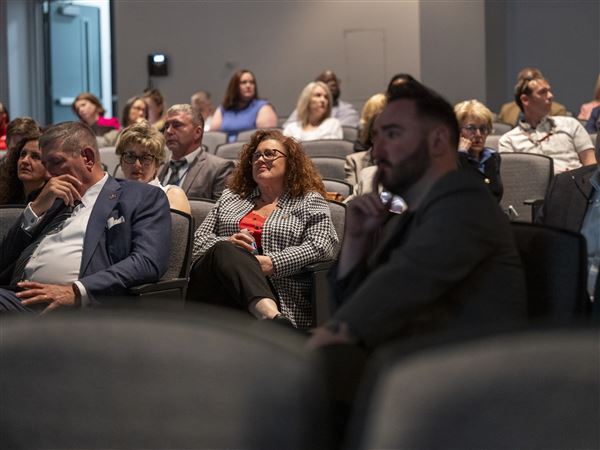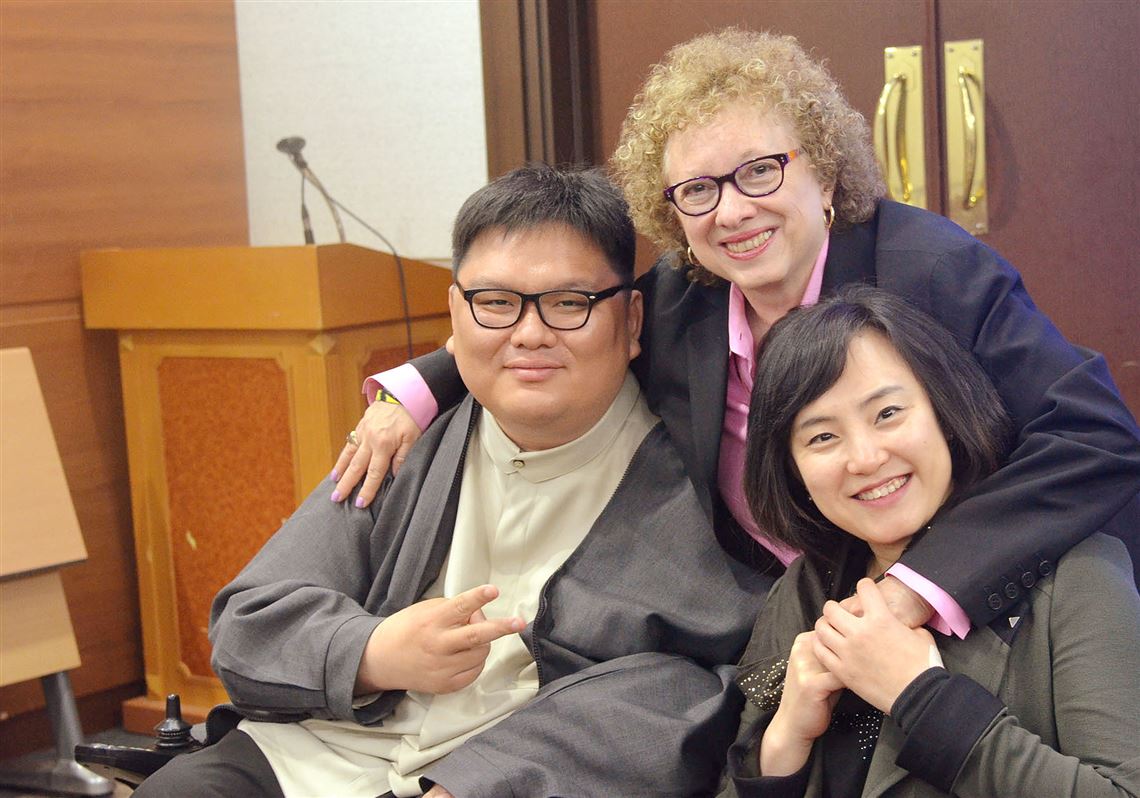There’s a place where, according to Joyce Bender, you can see what America looked like for disabled workers before the Americans with Disabilities Act in 1990 expanded broad civil rights and protected them from discrimination.
In South Korea, people with epilepsy, autism, learning disorders and other disabilities are often pushed to the margins. Companies consider fines for violating the government’s mandate on hiring disabled workers as a cost of doing business. And there’s growing vocal advocacy for more access and protection for that part of the population.
The problem isn’t just South Korea’s to solve, said Ms. Bender in a recent interview, reflecting on a weeklong trip in April to the country of 50 million people in Southeast Asia. The prominent disability rights advocate and founder of Robinson-based Bender Consulting Inc. said change must happen on a global level.
“A seizure is a seizure no matter what country you’re in,” said Ms. Bender, who was diagnosed with epilepsy in the 1980s, summarizing her biggest takeaway from the trip. She was sought by South Korean disability advocates and organized through U.S. State Department.
Earlier this year, Ms. Bender was approached by the State Department and asked to share the progress the U.S. has made since the ADA’s signing. The idea was to help accelerate a nascent movement for disability rights in South Korea by speaking with policymakers, academia and disability groups.
Ms. Bender — who bought the original signed ADA document at an auction and displays it in a shadowbox hanging in her office — was a logical choice. Beginning her career in 1979 as a search consultant, a life-threatening accident turned her focus to workers with disabilities.
In 1985, she suffered a cerebral hemorrhage that forced emergency brain surgery. Though she recovered “miraculously” beyond expectations, she said, her doctor diagnosed her with epilepsy, a disorder that causes seizures.
She established Bender Consulting Services Inc. in 1995 to help companies recruit and hire people with disabilities in competitive fields, which include information technology, engineering, finance, human resources and accounting.
Bender Consulting claims to have helped place at least 1,000 people with disabilities into high-performing jobs. Across the consulting firms own offices in 18 states, it employs 53 individuals with disabilities ranging from blindness and hearing loss to autism, epilepsy and dyslexia.
Yet, according to the U.S. Department of Labor, just one in five people with disabilities in April were either employed or actively looking for a job.
During her visit, South Korea’s barriers showed. The country has no federal agency that monitors and enforces access for workers with disabilities, instead relying on a fine that many companies seem to pay rather than hiring people, Ms. Bender said.
The government does not pay adequately for certain medications that disabled people need, which becomes a self-perpetuating cycle if those people do not have jobs. And the country’s translation for epilepsy only recently changed its name away from a term synonymous with “madness.”
In Daegu, officials from the town’s Center for Independent Living took Ms. Bender to meet to meet two employees with developmental disabilities who were employed primarily in shelving books. The chair of the organization, Ms. Bender reported in a blog post, could not come up with another company that employs people with disabilities.
“The only way you change things is by hiring people,” she said that she told them. “Until you see someone working by your side in a wheel chair, or who is deaf, and say, ‘Wow, they can do this job, look at what a great job they’re doing’ — that’s the only way you change this whole situation.”
She saw indications that change could come. South Korean disability groups seemed willing to work together, greeting her with large welcome banners and enthusiastic crowds.
Accompanied by two South Korean diplomats and a translator, she spoke to hundreds of students at Korea Nazarene University, met with doctors and patients, and tried to identify ways for advocacy groups and employers to work together.
Some smaller-scale changes could happen right away. Advocates in South Korea are pushing the private sector to establish a Disability Equality Index, a metric sponsored by the U.S. Business Leadership Network that gauges large American corporations’ record on hiring people with disabilities.
Ms. Bender is also working with the State Department to encourage American companies with offices in South Korea to lead by example and hire disabled workers. “People with disabilities have great ability and talent and can impact the bottom line in a positive way. You can’t see it as a charity; you have to see it as a business solution.”
She plans to present her findings to the State Department in Washington, D.C., in June. Eventually, she wants to complete the exchange by bringing South Koreans doctors and advocates to the United States.
After the trip, Ms. Bender said a State Department official pulled her aside and said, “’Hey, have you ever thought about going to Mongolia?’”
Daniel Moore: dmoore@post-gazette.com, 412-263-2743 and Twitter @PGdanielmoore.
First Published: May 28, 2016, 4:00 a.m.

















